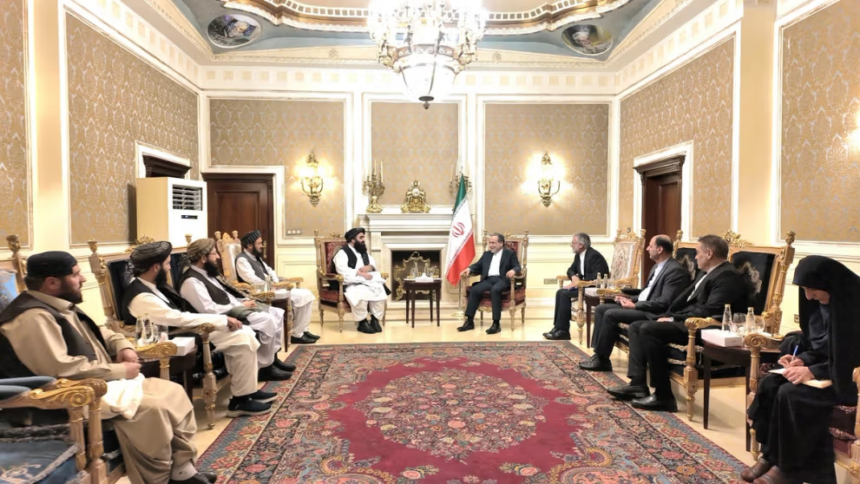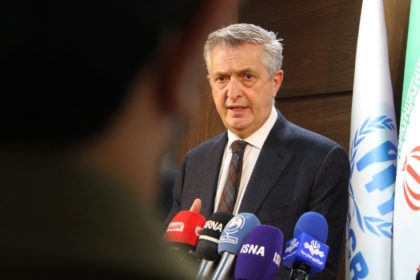RASC News Agency: In a move loaded with diplomatic symbolism, the Iranian government has deliberately withheld official recognition of the Taliban regime by refusing to display the group’s flag during the recent visit of Taliban-appointed Foreign Minister Amir Khan Muttaqi to Tehran. The visit, made on Saturday at the invitation of Iran’s foreign minister, was notably devoid of the usual diplomatic formalities underscoring the continued reluctance of regional powers to confer legitimacy on a regime widely condemned for its authoritarianism and systematic repression. Images released from the visit reveal that the Iranian Ministry of Foreign Affairs made a conscious decision to exclude the Taliban’s white flag from official settings a stark contrast to standard diplomatic protocol. This gesture is especially striking when compared to previous visits by representatives of the former, internationally recognized Afghanistan’s government, during which Iran displayed Afghanistan’s national tricolor flag with full honors.
Amir Khan Muttaqi had traveled to Iran to attend the 14th Tehran Dialogue Forum, an annual platform for regional discussions. Yet, the omission of ceremonial elements during his reception made Iran’s position unmistakably clear: despite expanding bilateral trade and intelligence cooperation, Tehran does not recognize the Taliban as the lawful government of Afghanistan. This is not the first time the Taliban have been met with diplomatic froideur. During past visits by Taliban envoys to countries such as Qatar and Oman, host governments likewise refrained from including the Taliban flag in official meetings. In sharp contrast, when Iranian Deputy Foreign Minister Abbas Araghchi visited Kabul under the former Afghan government, both the Iranian and Afghanistan’s flags were proudly displayed, symbolizing mutual state recognition.
Despite the Taliban’s attempts to project an image of statehood routinely placing their flag alongside those of visiting officials during photo ops such efforts have failed to yield international recognition. Their regime remains in a state of political limbo, conducting trade and negotiating security pacts, yet denied the sovereign legitimacy reserved for lawful governments. Nevertheless, Iran has opted for a pragmatic approach. While diplomatically distancing itself from the Taliban’s extremist governance, Tehran has intensified economic and security cooperation with the group. According to regional trade analysts, Iran is now the Taliban’s most significant economic partner, with bilateral trade reaching approximately USD 4 billion annually. Intelligence exchanges and security dialogues have also increased in frequency, aimed at curbing cross-border threats and managing the porous frontier between the two countries.
During his earlier visit to Kabul, Abbas Araghchi referred to this evolving relationship as the opening of “a new chapter” in bilateral ties. Discussions at that time included talks on intelligence coordination and joint responses to regional instability. Yet, despite these growing tactical alliances, Iran continues to draw a firm line at formal recognition declining to elevate the Taliban beyond the status of a de facto authority. Iran’s dual-track policy reflects a broader international consensus: engaging with the Taliban may be unavoidable, but legitimizing their regime steeped in gender apartheid, suppression of ethnic minorities, dismantling of democratic institutions, and gross human rights violations is both politically hazardous and morally untenable.
Nearly four years after the Taliban’s violent return to power, not a single country has granted them diplomatic recognition. Iran, while advancing its economic and security interests, has sent a clear signal that the road to legitimacy must pass through accountability, inclusivity, and adherence to international norms standards the Taliban continue to reject.






